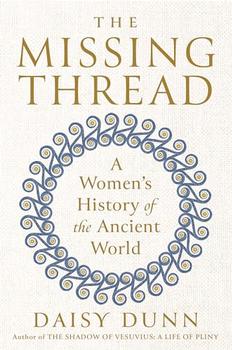Summary | Excerpt | Reading Guide | Reviews | Beyond the Book | Readalikes | Genres & Themes | Author Bio

A Novel
by Lisa SeeChapter One
Beautiful Girls
"Our daughter looks like a South China peasant with those red cheeks," my father complains, pointedly ignoring the soup before him. "Can't you do something about them?"
Mama stares at Baba, but what can she say? My face is pretty enough - some might even say lovely - but not as luminescent as the pearl I'm named for. I tend to blush easily. Beyond that, my cheeks capture the sun. When I turned five, my mother began rubbing my face and arms with pearl creams, and mixing ground pearls into my morning jook - rice porridge - hoping the white essence would permeate my skin. It hasn't worked. Now my cheeks burn red - exactly what my father hates. I shrink down into my chair. I always slump when I'm near him, but I slump even more on those occasions when Baba takes his eyes off my sister to look at me. I'm taller than my father, which he loathes. We live in Shanghai, where the tallest car, the tallest wall, or the tallest building sends a clear and unwavering message that the owner is a person of great importance. I am not a person of importance.
"She thinks she's smart," Baba goes on. He wears a Western-style suit of good cut. His hair shows just a few strands of gray. He's been anxious lately, but tonight his mood is darker than usual. Perhaps his favorite horse didn't win or the dice refused to land his way. "But one thing she isn't is clever."
This is another of my father's standard criticisms and one he picked up from Confucius, who wrote, "An educated woman is a worthless woman." People call me bookish, which even in 1937 is not considered a good thing. But as smart as I am, I don't know how to protect myself from my father's words.
Most families eat at a round dining table, so they will always be whole and connected, with no sharp edges. We have a square teakwood table, and we always sit in the exact same places: my father next to May on one side of the table, with my mother directly across from her so that my parents can share my sister equally. Every meal-day after day, year after year-is a reminder that I'm not the favorite and never will be.
As my father continues to pick at my faults, I shut him out and pretend an interest in our dining room. On the wall adjoining the kitchen, four scrolls depicting the four seasons usually hang. Tonight they've been removed, leaving shadow outlines on the wall. They aren't the only things missing. We used to have an overhead fan, but this past year Baba thought it would be more luxurious to have servants fan us while we ate. They aren't here tonight and the room is sweltering. Ordinarily an art deco chandelier and matching wall sconces of etched yellow-and-rose-tinted glass illuminate the room. These are missing as well. I don't give any of this much thought, assuming that the scrolls have been put away to prevent their silken edges from curling in the humidity, that Baba has given the servants a night off to celebrate a wedding or birthday with their own families, and that the lighting fixtures have been temporarily taken down for cleaning.
Cook - who has no wife and children of his own - removes our soup bowls and brings out dishes of shrimp with water chestnuts, pork stewed in soy sauce with dried vegetables and bamboo shoots, steamed eel, an eight-treasures vegetable dish, and rice, but the heat swallows my hunger. I would prefer a few sips of chilled sour plum juice, cold mint-flavored sweet green bean soup, or sweet almond broth.
When Mama says, "The basket repairer charged too much today," I relax. If my father is predictable in his criticisms of me, then it's equally predictable that my mother will recite her daily woes. She looks elegant, as always. Amber pins hold the bun at the back of her neck perfectly in place. Her gown, a cheongsam made of midnight blue silk with midlength sleeves, has been expertly tailored to fit her age and status. A bracelet carved from a single piece of good jade hangs from her wrist. The thump of it when it hits the table edge is comforting and familiar. She has bound feet, and some of her ways are just as antiquated. She questions our dreams, weighing the meaning of the presence of water, shoes, or teeth as good or bad omens. She believes in astrology, blaming or praising May and me for one thing or another because we were born in the Year of the Sheep and the Year of the Dragon, respectively.
Excerpted from Shanghai Girls by Lisa See Copyright © 2009 by Lisa See. Excerpted by permission of Random House, a division of Random House, Inc. All rights reserved. No part of this excerpt may be reproduced or reprinted without permission in writing from the publisher.




Your guide toexceptional books
BookBrowse seeks out and recommends the best in contemporary fiction and nonfiction—books that not only engage and entertain but also deepen our understanding of ourselves and the world around us.